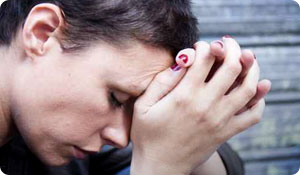
Anyone who's watched television in the last few years has seen the ads for antidepressants that maintain depression is caused by a chemical imbalance. Take this little pill, they imply, and your brain's hormones will magically rebalance themselves-and you'll feel fine again. But is it true? Does depression have its roots in a simple chemical imbalance? Or is the truth more complicated?
The answer, not surprisingly, is both. Experts have long contended that the brains of people suffering from major depression show different chemical makeups than the brains of other people. A study conducted a few years ago by the Centre for Addiction and Mental Health (CAMH) in Canada confirmed this: The brains of people suffering from untreated major depression had 34 percent more of an enzyme responsible for destroying the so-called happiness chemicals-serotonin, norepinephrine and dopamine-that are responsible for our good feelings and uplifted moods.
But how do brain chemicals become unbalanced in the first place? According to Dr. Mark Williams, a Mayo Clinic psychiatrist, for some people the imbalance may have a purely biological basis-perhaps there's a genetic predisposition-and for some people, the imbalance may come about because of life stresses such as divorce, death, job loss, or another major event. Apparently, depression is not a one-way street caused exclusively by a chemical mismatch. Depression can arise from a host of factors, and a random biological condition is only one of them. And just as certain life events may trigger depression, other life events can cure it. Getting married, finding a great job, losing weight, going back to school-if these make you happy, then you may find yourself lifted out of your depression without going through any official treatment at all.
The bottom line? Depression is not a one-size-fits-all occurrence. If you have the symptoms of depression-fatigue, loss of interest in your usual activities, inability to concentrate, overwhelming feelings of sadness, changes in appetite and disturbed sleep-talk to your healthcare provider. Perhaps an antidepressant will be the key for you. Perhaps counseling will be a better cure. You may need to incorporate more exercise into your life. Or you might rely on a combination of therapies to restore your spirits. Whatever the cause of your depression, you owe it to yourself and those around you to treat it and start living again.
Source: Centre for Addiction and Mental Health, http://www.camh.net/News_events/News_releases_and_media_advisories_and_backgrounders/New_Depression_Model_Nov_2006.html. Study released November 2006.





